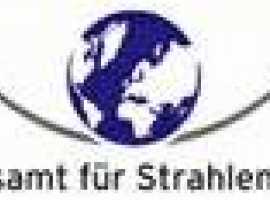
Partner 8: Bundesamt für Strahlenschutz (BfS), Germany
BUNDESAMT FUER STRAHLENSCHUTZ (BfS) is the federal authority for radiation protection in Germany. It is the scientific-technical superior federal authority for radiation protection in Germany and is supervised by the Federal Ministry for the Environment, Nature Conservation and Nuclear Safety (BMU). BfS is divided into four departments: “Nuclear Safety”, “Nuclear Waste Management”, “Radiation Protection and Health”, and “Radiation Protection and the Environment”. BfS works for the safety and protection of man and the environment against damage due to ionising and non-ionising radiation. It conducts in-house research and initiates, funds and supervises radiation protection research within the national research program of BMU. BfS is a member of many international organisations, involved in several EU funded projects and in the German-Japanese cooperation FAIRDO (Fukushima Action Research on Effective Decontamination Operation). BfS is founding member of the ALLIANCE. Staff members contributing to COMET:
Dr. Klaus Gehrcke is currently Head of the Department “Radiation Protection and the Environment”. It comprises the two divisions “Radioactivity in the Environment” and “Emergency Preparedness”. Its scientific work focuses on monitoring of natural and artificial radionuclides in the environment and on predicting exposures to man and biota using radioecological models.Dr. Gehrcke is a specialist for the registration, investigation and evaluation of NORM residues and has an in-depth knowledge of national and international NORM legislation. Dr. Gehrcke is the Secretary of the Working Group on “Natural Radioactivity” of the German-Swiss Association for Radiation Protection.
Dr. Liebetraud Edelhäuser-Hornung is Head of the Section “Radioecology”. Current fields of action include
concepts for the protection of wildlife, the realistic assessment of radiation exposure and modeling radioecological processes related to the clearance of low-level radioactive waste. She is a member of the Committee on Radioecology of the German Radiation Protection Commission and was deputed as a national expert to the European Commission (2000 to 2002).
Bianka Denstorf is experienced in quality management (internal auditing, accompanying ongoing accreditationprocesses etc.), in project management and evaluation.
The three staff members mentioned above will contribute to WPs 2, 3 and 5.
Dr. Martin Steiner (WPs 1, 2, 3, 5) focuses his research on key processes relevant for the mobility and transfer of radionuclides in the environment and advanced techniques of process-oriented modeling. He was awarded a research fellowship in radioecology by the Japanese Science and Technology Agency.
Christine Willrodt (WPs 2, 3, 5) has been supervising radiation protection research within the national research program and participating in several international projects (ERICA, PROTECT, EMRAS).
Dr. Eva Kabai (WP 3) is a senior radiochemist developing and publishing new and combined methods for the determination of natural and anthropogenic radionuclides in different matrices.
Dr. Rainer Merk (WP 3) has expertise in groundwater contaminant modeling, notably radionuclide transport through porous media and in computer simulation and mathematical modeling.
Karin Wichterey (WP 3) and Michael Kümmel (WP 3) are senior scientists with long-term expertise in radon, NORM and radioactive legacies of former uranium and traditional ore mining.
Dr. Ulrike Kulka (WPs 2, 4, 5) is Head of the Section “Biological Radiation Effects and Biological Dosimetry”. She is specialised in cellular and cytogenetic radiation damage and in biological dose reconstructions after radiological accidents. She is involved in several EURATOM EU projects and platforms like DoReMi, Epi-Ct, RENEB (coordinator) and MELODI. Within the DoReMi Education & Training Committee she is in charge of the training course "Interdisciplinary Radiation Research".
